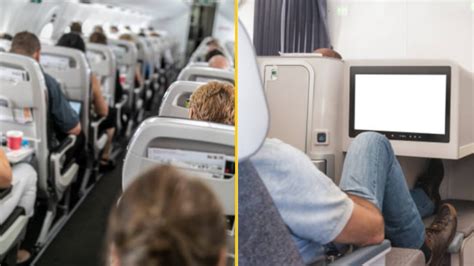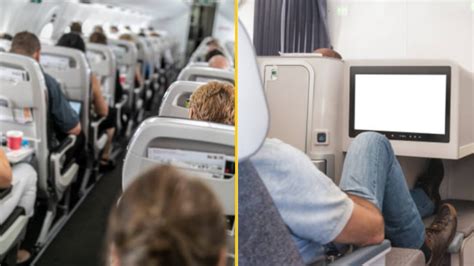
An influencer has been banned from future sailings with a major cruise line after a purported money-saving “hack” involving sneaking alcohol onboard backfired, resulting in significant repercussions.
A woman known as @cruisingcontent on TikTok, whose real name has not been publicly released, posted a video demonstrating how she attempted to circumvent the cruise line’s alcohol policy by filling mouthwash bottles with liquor. Carnival Cruise Line subsequently identified the passenger and enforced its policy, prohibiting her from sailing with them again. The incident serves as a cautionary tale regarding the risks associated with attempting to violate cruise line regulations, even when presented as harmless tips on social media.
The influencer’s video, which quickly gained traction online, showed her emptying bottles of mouthwash and refilling them with what appeared to be alcoholic beverages. The clear liquid closely resembled mouthwash, and the bottles were resealed to avoid detection by cruise line staff during boarding. The influencer presented this as a clever way to save money on alcoholic drinks, which can be expensive on cruise ships.
Carnival Cruise Line, like most cruise operators, has specific rules regarding bringing alcohol on board. Typically, passengers are permitted to bring a limited quantity of wine or champagne, but hard liquor is generally prohibited. The purpose of these regulations is multifaceted, including generating revenue through onboard alcohol sales, controlling passenger behavior, and ensuring a safe environment for all guests.
“Our policies are in place for the safety and well-being of all our guests,” said a Carnival Cruise Line spokesperson. “We take any attempt to circumvent these policies seriously.”
The influencer’s actions were met with mixed reactions online. While some viewers applauded her ingenuity, others criticized her for potentially violating cruise line rules and encouraging others to do the same. Many pointed out that if caught, passengers could face consequences ranging from confiscation of the alcohol to being disembarked at the next port of call.
The incident highlights the growing tension between the desire for authentic content and the need for responsible behavior among social media influencers. While influencers often seek to provide value and entertainment to their followers, their actions can have real-world consequences, particularly when they involve potentially illegal or unethical activities. Cruise lines, in turn, are increasingly vigilant in monitoring social media for violations of their policies and taking swift action to maintain order and safety on board their ships.
The ban imposed on the influencer underscores the seriousness with which Carnival Cruise Line views such violations. Cruise lines operate under strict regulations and are responsible for the safety and well-being of thousands of passengers and crew members. Allowing passengers to freely circumvent established rules could lead to a breakdown in order and potentially create hazardous situations.
Moreover, the sale of alcohol is a significant revenue stream for cruise lines. By prohibiting outside alcohol, cruise lines can control the supply and pricing of beverages on board, contributing to their overall profitability. While some passengers may view this as an inconvenience, it is a necessary part of the cruise line’s business model.
The episode also serves as a reminder that social media posts, even those intended as humorous or lighthearted, can have unintended consequences. In the age of viral content, videos and images can quickly reach a wide audience, potentially inspiring others to engage in similar behavior. This can create a ripple effect, leading to increased enforcement efforts and stricter regulations.
Carnival Cruise Line has not disclosed the exact duration of the ban imposed on the influencer, but it is likely to be a permanent prohibition from sailing with the company. The cruise line’s decision sends a clear message that it will not tolerate attempts to circumvent its policies, regardless of how clever or harmless they may appear.
The influencer, for her part, has not publicly commented on the ban. However, her actions have sparked a wider debate about the ethics of social media influencing and the responsibility of content creators to promote safe and responsible behavior. The incident is likely to serve as a cautionary tale for other influencers who may be tempted to engage in similar activities in the pursuit of online attention.
The impact of social media on the travel industry is undeniable. Cruise lines, in particular, have embraced social media as a powerful tool for marketing and engagement. However, the rise of social media has also presented new challenges, including the need to monitor and respond to potential violations of their policies.
In recent years, cruise lines have invested heavily in technology and training to identify and address issues such as onboard disturbances, illegal activities, and violations of environmental regulations. Social media monitoring is now a standard practice for many cruise operators, allowing them to quickly detect and respond to potential problems.
The incident involving the influencer and Carnival Cruise Line is a prime example of the complex relationship between social media, the travel industry, and consumer behavior. As social media continues to evolve, it is likely that cruise lines and other travel companies will face new challenges and opportunities in managing their online presence and enforcing their policies.
The broader implications of this event are significant. It raises questions about the responsibility of social media influencers, the enforcement capabilities of private companies like cruise lines, and the evolving nature of consumer behavior in the digital age. While the influencer may have initially viewed her actions as a harmless way to save money, they ultimately resulted in a costly and embarrassing outcome.
The case serves as a reminder that even seemingly minor violations of company policies can have serious consequences. Cruise lines, in particular, are highly regulated and have a strong incentive to enforce their rules in order to maintain order, safety, and profitability. As social media continues to play an increasingly important role in our lives, it is essential to be aware of the potential impact of our online actions and to act responsibly at all times.
The incident is also a reflection of the broader trend of consumers seeking ways to save money on travel and leisure activities. With the rising cost of cruises and other vacation options, many people are looking for creative ways to reduce their expenses. However, it is important to remember that cutting corners can sometimes come at a price, particularly when it involves violating established rules and regulations.
Carnival Cruise Line’s response to the influencer’s actions demonstrates its commitment to enforcing its policies and protecting its interests. While some may view the ban as harsh, it sends a clear message that the cruise line will not tolerate attempts to circumvent its rules, regardless of the potential publicity or social media attention.
In conclusion, the incident involving the influencer and Carnival Cruise Line is a cautionary tale about the risks of attempting to violate company policies, particularly in the age of social media. While influencers may be tempted to engage in such activities in the pursuit of online attention, they should be aware of the potential consequences, which can include bans, fines, and reputational damage. Cruise lines, in turn, must remain vigilant in monitoring social media and enforcing their policies in order to maintain order, safety, and profitability. The incident serves as a reminder that responsible behavior and respect for established rules are essential, both online and offline.
Expanded Context and Analysis:
Beyond the immediate incident, the Carnival Cruise Line banning of the influencer underscores several key trends in the travel and social media landscape. Firstly, it highlights the increasing power and reach of social media influencers. Their content, whether intended as harmless tips or something more, can rapidly disseminate to a large audience, shaping perceptions and potentially influencing behavior. Cruise lines, acutely aware of this, now actively monitor social media to protect their brand image and enforce their policies.
Secondly, the event illustrates the inherent conflict between the desire for authentic, engaging content and the necessity for responsible conduct. Influencers often feel pressure to create content that “goes viral,” pushing boundaries to capture attention. However, this pursuit of virality can sometimes lead to ethically questionable or outright illegal activities. The influencer in question likely believed her “hack” was a clever way to save money, but failed to fully consider the potential repercussions of violating Carnival’s alcohol policy.
Thirdly, the incident reveals the lengths to which cruise lines will go to protect their revenue streams and maintain control over the onboard experience. Alcohol sales are a significant source of income for cruise lines, and allowing passengers to freely bring their own beverages would undermine this revenue model. Furthermore, cruise lines have a vested interest in controlling alcohol consumption to prevent disruptive behavior and ensure the safety of all passengers.
Fourthly, the ban highlights the evolving relationship between consumers and corporations in the digital age. Consumers are increasingly empowered to voice their opinions and share their experiences online, and companies are forced to respond accordingly. Cruise lines, in particular, are highly sensitive to negative publicity and will take swift action to address any issues that could damage their reputation.
Fifthly, the incident serves as a reminder of the importance of reading and understanding the terms and conditions of any agreement, whether it’s a cruise contract or a social media platform’s user agreement. Many people simply skim over these documents, but they often contain important information about the rules and regulations that apply to the service being provided.
The Broader Impact on the Cruise Industry:
The incident could have several broader impacts on the cruise industry.
-
Increased Scrutiny: Cruise lines may increase their scrutiny of passengers’ luggage and behavior, both during the boarding process and throughout the cruise. This could lead to longer lines, more thorough searches, and a more intrusive experience for passengers.
-
Stricter Alcohol Policies: Cruise lines may revise their alcohol policies to further restrict passengers’ ability to bring their own beverages on board. This could include limiting the amount of wine or champagne that is allowed, or prohibiting outside alcohol altogether.
-
Enhanced Social Media Monitoring: Cruise lines are likely to invest even more resources in monitoring social media for violations of their policies. This could involve using sophisticated software to track mentions of their brand and identify potential issues.
-
Influencer Collaboration Challenges: Cruise lines may become more cautious about collaborating with social media influencers. They may require influencers to sign agreements promising to adhere to all company policies and to refrain from engaging in any behavior that could damage their reputation.
-
Reputation Management: The incident underscores the importance of reputation management for cruise lines. They need to be proactive in addressing negative publicity and in communicating their policies to passengers.
Ethical Considerations for Influencers:
The incident raises important ethical considerations for social media influencers:
-
Responsibility for Content: Influencers have a responsibility to create content that is accurate, truthful, and not misleading. They should avoid promoting illegal or unethical activities.
-
Disclosure of Sponsorships: Influencers should clearly disclose any sponsorships or partnerships they have with companies. This ensures that their followers are aware of any potential bias in their content.
-
Respect for Company Policies: Influencers should respect the policies of any company or organization they are working with. They should not attempt to circumvent these policies or engage in any behavior that could damage the company’s reputation.
-
Awareness of Impact: Influencers should be aware of the potential impact of their content on their followers. They should avoid promoting behaviors that could be harmful or dangerous.
-
Transparency and Authenticity: Influencers should strive to be transparent and authentic in their interactions with their followers. This builds trust and credibility.
The Role of Social Media Platforms:
Social media platforms also have a role to play in addressing these issues:
-
Content Moderation: Social media platforms should have clear policies against promoting illegal or unethical activities. They should also have effective content moderation systems in place to remove content that violates these policies.
-
Transparency and Accountability: Social media platforms should be transparent about their content moderation policies and practices. They should also be accountable for the content that is posted on their platforms.
-
Education and Awareness: Social media platforms should educate their users about responsible online behavior. This includes promoting media literacy and teaching users how to identify misinformation.
-
Partnerships with Companies: Social media platforms should partner with companies to address issues such as copyright infringement and trademark violations.
Conclusion:
The Carnival Cruise Line banning of the influencer is a complex issue with far-reaching implications. It highlights the growing power of social media, the ethical responsibilities of influencers, the enforcement capabilities of private companies, and the evolving relationship between consumers and corporations in the digital age. As social media continues to play an increasingly important role in our lives, it is essential to be aware of the potential impact of our online actions and to act responsibly at all times. Cruise lines must adapt to the changing landscape by enhancing their monitoring efforts and clearly communicating their policies, while influencers should prioritize ethical behavior and consider the potential consequences of their content. This incident serves as a valuable lesson for all stakeholders in the travel and social media ecosystem.
Frequently Asked Questions (FAQ):
1. What exactly did the influencer do that led to her ban?
The influencer, known as @cruisingcontent on TikTok, posted a video demonstrating how she emptied mouthwash bottles and refilled them with alcohol in an attempt to sneak it onto a Carnival cruise ship, circumventing the cruise line’s policy prohibiting bringing hard liquor onboard.
2. Why do cruise lines have rules about bringing alcohol onboard?
Cruise lines have these rules for several reasons, including generating revenue through onboard alcohol sales, controlling passenger behavior and maintaining a safe environment, and adhering to regulatory requirements. Alcohol sales contribute significantly to a cruise line’s profitability, and restricting outside alcohol allows them to control the supply and pricing of beverages.
3. What are the potential consequences of violating a cruise line’s alcohol policy?
Depending on the severity of the violation, consequences can range from confiscation of the alcohol to being disembarked at the next port of call. In more serious cases, passengers may be banned from future sailings with the cruise line, as was the case with the influencer in this incident.
4. Has the influencer commented on the ban or addressed the situation publicly?
According to reports, the influencer has not yet publicly commented on the ban or addressed the situation.
5. Does this incident suggest cruise lines are becoming stricter about enforcing their policies?
Yes, this incident is a clear indicator that cruise lines are increasingly vigilant in monitoring social media for potential violations of their policies and are prepared to take swift action to maintain order, safety, and revenue streams. The industry’s reliance on reputation and the importance of onboard safety likely influence this stricter enforcement.









